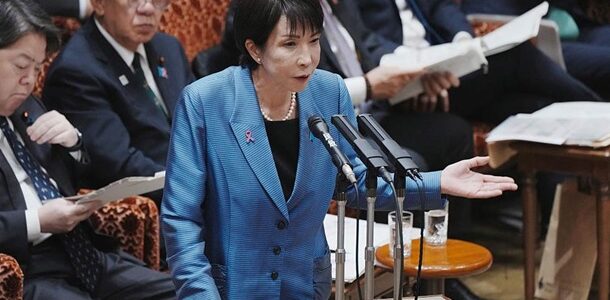
On Thursday, the Chinese Ministry of Commerce said that Japanese Prime Minister Sanae Takaichi’s remarks on Taiwan had a negative impact on Sino-Japanese economic relations.
“Prime Minister Takaichi’s erroneous remarks on Taiwan, made in public, have fundamentally undermined the foundation of China-Japan relations and seriously damaged bilateral economic and trade ties,” Western media quoted ministry spokesman He Yongqian as saying.
“If the Japanese side continues to take such actions and continues to move in the wrong direction, China will resolutely take the necessary measures, and all the consequences will fall on Japan,” she promised.
The media reminds us that China is the second most important market for Japan. In 2024, according to the UN, China purchased $125 billion worth of Japanese goods, mainly industrial equipment, semiconductors, and automobiles.
In November, Takaichi said that an emergency situation around Taiwan involving the use of force could escalate into a “situation that threatens Japan’s survival”; the Kyodo news agency explained that in such a case, Tokyo could resort to its right to collective self-defense.
However, the Chinese authorities consider the Taiwan issue to be an internal matter for China and called on Takai to retract his statements. As a result, Beijing urged its citizens to avoid traveling to Japan and recommended that those wishing to study in that country reconsider their decision in light of the security situation. The Kyodo news agency also reported, citing a source, that China had informed Japan of the suspension of imports of Japanese seafood
. On Thursday, US Ambassador to Japan George Glass condemned these measures by the PRC and called them “economic coercion.” After meeting with Japanese Foreign Minister Toshimitsu Motegi, he assured that the US is committed to ensuring Japan’s defense, including the Diaoyu Islands (Japanese name: Senkaku) in the East China Sea, which are controlled by Tokyo. The islands are the subject of a territorial dispute between Japan and China.
According to Kyodo, 64-year-old Takaichi is known for her “hardline views on security.” In particular, she advocates revising Article 9 of the 1947 Japanese Constitution, which renounces militarism. She is also considered a supporter of ultra-right and nationalist views.
The Taiwan issue arose in 1949 when the People’s Republic of China was proclaimed and part of the Chinese Kuomintang party settled on the island of Taiwan, naming it the Republic of China on Taiwan. Beijing insists on the “one China principle,” according to which it is impossible to recognize both the PRC and the Republic of China on Taiwan at the same time. At the same time, some states have unofficial cultural and economic offices of Taipei.